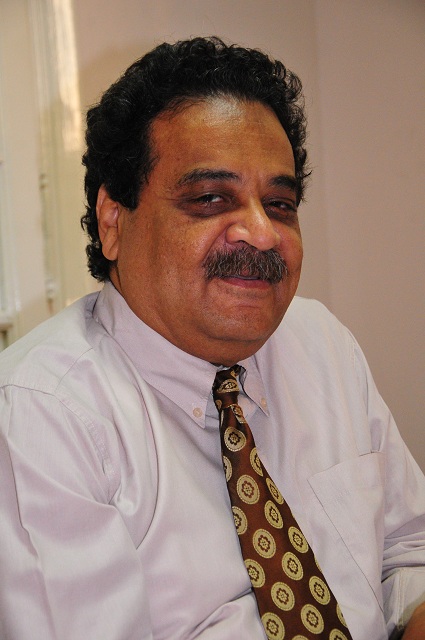
Egypt has gradually been trying to come out from under the cloak of theocracy for many years now, the first attempt beginning after the start of the French occupation of Egypt. Towards the beginning of that period, it was the scholars of Al-Azhar who led the campaign to expel the wave of infidel invaders, however it wasn’t long before they came to appreciate what those invaders brought in the way of modernity. The selection of Muhammad Ali as governor of Egypt came as a result of their appreciation for European modernity, despite the fact that it came in the form of invasion. By that time, the scholars of Al-Azhar had long been hostile to the culture and socio-economic composition of the Egyptian nation, preferring instead to cast the country as simply one of a series of provinces existing within successive Islamic empires. By this time, Egypt had already lost many of the traits that once composed its national identity prior to the arrival of Islam. This characterisation of Egypt that refused to acknowledge the existence of its unique national identity first became engrained in the minds of the country’s religious scholars during the Middle Ages, when its role as a mere state existing within the bounds of Islamic empire became most crystallised. Egypt’s role within the context of religion would come to define the country and serve as the foundation for which various policies were created.
It stands to reason that if modernity was brought to Egypt by foreigners, then it makes sense for Egyptians at that time to be caught between two extremes. Either reject modernity and the legitimacy of occupation (or in other words, reject modernity because of one’s rejection of the legitimacy of occupation), or to accept the benefits of occupation and what it brought in the way of modernity. The second option obviously became incredibly unpopular, essentially being removed as a part of common political discourse with the removal of the French.
That being said, with the marginalisation of those Egyptians who supported the legitimacy of occupation, we saw the rise of a number of movements that tried to square the circle and support the country’s path towards modernity while rejecting the French occupation that brought it. Many also attempted to demonstrate that acceptance of modernity did not mean the full scale rejection of religion, with some, such as Rifa’a al-Tahtawi, upon arriving in Paris, going so far as to say that what he witnessed there was the embodiment of Islamic values in a society devoid of Muslims. I assume that when it came to what al-Tahtawi witnessed in Egypt in the way of backwardness and the deterioration of Egypt’s social fabric, he saw a country of Muslims living in a society devoid of Islam. It should be noted that it was al-Tahtawi, at the behest of Muhammad Ali, who made the first attempt to establish a modern state in Egypt that tried to combine the past with the present while holding onto the values of religion, bringing Egypt out of the Middle Ages and into modernity. The notion that Islam does not call for the implementation of any specific form of government was first introduced during this period and would continue throughout those periods that followed it.
However this first form of thinking, which remained hostile to both the notions of occupation and modernity, persisted in its radical form, labelling itself as a “fundamental” and predicting an inevitable conflict between Egypt’s “heritage” and “modernity”, or between “east” and “west”, or the notion of an “Islamic state” versus a civil, secular and otherwise heathen one. Since then, more moderate versions of this form of thinking have emerged, however all of them continue to view, in one way or another, modernity through the context of religion.
The conflict between these two opposing forces has persisted since the end of the French occupation until now, with supporters of modernity in its various forms gradually gaining ground. The forces of modernity however, have at times found themselves losing when efforts at modernisation fail, finding that there is a direct correlation between the success of various economic and social infrastructure projects and the extent to which the notion of modernity and its place within Egyptian culture is valued. Egypt has often found itself struggling with perverted attempts to modernise, often doing so while living under occupation, or under the indirect control of foreigners. It is natural then that many within society have come to view modernisation, and all that comes with it, as destructive and having eaten away at society’s social and economic roots. These various waves of modernisation, through Muhammad Ali, to Khedive Ismail, from the 1919 revolution to that of 1952, have all brought Egypt closer to the establishment of a modern, civil society, with the exception of the latter which sought to establish a new form of democracy, sidelining religious discourse with that of nationalism.
While the forces of modernity sought to prove themselves through the establishment of state institutions, Islamists, who rejected democracy, often gathered in marginalised farming regions in the countryside. These regions were quick to embrace the fascist forces of discontent, keeping in mind the failure of capitalism and other attempts at modernisation to promote growth and development in Egypt. However these fascist forces were themselves at times allied with the same reactionary movements that led Egypt down its distorted path to modernity since the end of the second world war, until they themselves rose to power.
So I ask, have these forces really succeeded in rejecting modernity, or have they rather taken up its cause? Has the Muslim Brotherhood succeeded in creating a religious state capable of turning Egypt into an industrialised country that has no need for democracy? Or is it worse; does the Islamic state of Egypt even have a need for industrialisation, or is it equally as worthless as democracy?
Some may say that we are still far from the establishment of a true theocracy, however I say to those people that we are not in fact that far off from reaching that reality. Although we are not there yet, we have already begun down that path. Egypt’s democratic forces should be warned that what we see now in the promotion of so called “Islamic bonds” is the first step towards establishing a religious state, seeing as the idea itself came from the government and not the banks. Eventually, the administration of Islamic bonds will move from being under the purview of the Shura Council, to a small council of sheikhs, who will determine the extent to which such bonds comply with Shari’a law.
The establishment of an unelected body tasked with making decisions that are usually made by traditional legislative institutions is the first step towards the path of dictatorship. However seeing that this body will consist only of religious men, making decisions based off what is halal and what is haram, this new form of repression will take a religious tinge.
It is up to Egypt’s democratic forces to bear the burden of sabotaging these attempts to establish a religious state.
